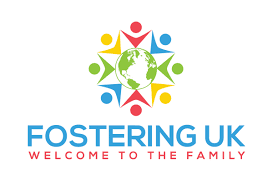What is private fostering?
When a person who is not a parent or a "near relative" (such as a great aunt, cousin, mom's friend, or a neighbour) cares for a child or young person under the age of 16 (or under the age of 18 if they are disabled) for at least 28 days in their own home, it is referred to as private fostering. Additionally, it includes kids who spend more than two weeks of the school break in a residential school.
According to the UK fostering In other terms, private fostering is the caring of a child by someone who is not their parent or a close family member while they are under the age of 16 (or under the age of 18 if they are disabled). This confidential arrangement, which is anticipated to last at least 28 days, was arranged between a parent and a caretaker.
A foster family in need of help may benefit from a private fostering arrangement from friends and the neighbourhood.
There are numerous factors that could prevent a parent from providing short- or long-term care for their own child. Any youngster who is away from their parents, for whatever reason, may be vulnerable. Hence, it is our shared responsibility to make sure that every privately fostered kid obtains alternative care that satisfies their needs for welfare and security.
Typical scenarios where kids are privately fostered include:
- Youngsters travelling with their parents or families
- If the parent is chronically ill, hospitalised, or imprisoned
- Kids whose parents go to school or work in the UK
- Refugees and asylum seekers
- Children trafficked
- Children in the area who live separately from their family
- where there may be no stable household due to parental separation or divorce.
- Teenagers and adolescents
- Youngsters enrolled in language schools
- Independent boarding school students who spend the holidays away from home
- Foreign children brought in with the intention of adoption
The Children's Services division of the local council needs to be alerted in certain circumstances. To make sure the child is safe, do background checks, and ensure support is being offered, a social worker will visit the home and speak with the carer and the child.
The local council's Children's Services department must be informed about the arrangement by birth parents, private foster parents, and anybody making arrangements for a child to be privately fostered, according to the legislation. If you are personally or professionally acquainted with someone who is privately fostering or who is intending to do so, you should urge them to inform Children's Services. If they are unable to do so, you should assume responsibility for doing so.
Among the resources accessible to private foster carers are:
- Assistance with benefits and potential money for certain necessary goods
- Visit your local council's website for more information about private fostering.
- Parenting assistance and advice can help reunite families in need.
Make sure the child's parents provide you with as much information about the child as they can, including the child's health, academic achievements, religious and cultural requirements, eating habits, pastimes, and likes and dislikes. This will assist you in better understanding the youngster and caring for him or her.
UK Fostering provides support for both foster children and fosters parents.




Comments
Post a Comment